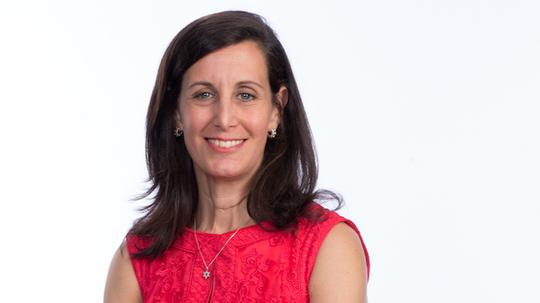
My reaction when people say ‘give it time’ in response to the number of women in startups is, we’ve given it time. The numbers are only getting worse in computer science and venture capital. There was a higher % of women in computer science when I was choosing a University than in the 2010s. We could be on a collision course with zero at this point if the current trends continue.
It is often assumed that I invest in women specifically. I don’t invest in women, per se. Like most investors, I invest in good people capable of executing on exceptional ideas, finding the best opportunities I can in my deal flow. I get a disproportionate amount of business plans from female founders and other underrepresented minorities, and that has an impact on the outcome in terms of my investments.
Some of the top female founders I see are looking for investors where their gender will have less impact on their outcomes, and they perceive that to be difficult. This creates an opportunity for me that shouldn’t exist, but somehow persists.
Swimming Upstream
I have days where I find myself in the same boat, as I raise a fund (Good Growth Capital) with other female partners. Research that has been on my mind for some time shows similar trends in fund management to the entrepreneurs they invest in. A KPMG report last year found that women-owned and managed funds are not making limited progress attracting capital, despite continually outperforming the industry. The more interesting part to me was the two different perspectives: potential investors felt that there were a limited number of funds to invest in, and the women perceived it was more difficult to raise money than for male-led funds. I find myself in the same boat as the women who pitch to me.
Potential Investors Feel Diverse Choices Are Limited
In a time when we are acknowledging the untapped potential women have to contribute in the startup space, I think it would be great if folks who see this issue could get a view upstream of startup investments which can either contribute to the problem or maybe become a solution for it. Upstream of the venture funds are the venture fund investors, usually known as the Limited Partners of the fund. These tend to be pension funds, family offices and wealthy individuals.
Grandfathering is the dominant dynamic in fund management...the main way to be a member is to have been a member for a long time.
It turns out raising the capital that goes into venture funds mirrors raising capital more generally when it comes to women. Women haven’t made much progress at becoming partners at venture capital firms; their numbers look similar to the percent of capital invested in women-led companies.
Women-Led VC Firms Face ‘Grandfathering’
What do these women-led venture firms look like? Some women have left big firms to start their own funds, but perceive the fundraising process to be stacked against them. My own firm and a number of other newer firms, were started by women who had all of the pieces – smaller fund management, early stage investing experience, IP assessment, growth support, and are putting them together as a team to raise funds that quite often have nothing to do with the managers’ gender as part of the investing thesis. Some of these funds focus on women-led companies as investment candidates.
Once a team is together and trying to raise capital, there are some metrics to look at, similar to evaluating any new business. It’s potentially useful to think about the traits that are helpful for starting a venture fund:
Track record: It is very helpful to have a long track record of investing capital with a better than average return for your fund’s peer group.
Team cohesion: Also important is a team that has been together investing, with a common track record.
Strong thesis: Of course there must be a clear and compelling reason for the fund to be; an untapped opportunity or a special area of expertise in evaluation, and /or a unique way of identifying and supporting early stage company opportunities.
You can see how these attributes are important to a fund, yet can be hurdles to a new team – and have resulted in a literal grandfathering effect. When a track record and team that has been together for a while are table stakes, it’s difficult for new managers of any demographic to get into the business. Unfortunately, this grandfathering is the dominant dynamic in fund management today, creating a group where the main way to be a member is to have been a member for a long time.
The Opportunity
There is an opportunity, given the noted performance of women-led funds, for the partners upstream to provide support. For example, the Commonwealth of Massachusetts recently pushed to have more women managers for its pension fund investments. This type of move is critical; even making such a statement will bring in women managers for diligence.
Maybe that’s the point: If women are messaged that they are welcome by LPs, they can target those specific LPs for potential investment. And then both sides of the equation--LPs who can’t find qualified managers and the women who are struggling to break through--will do better.
As you may already know, it's Women's Entrepreneurship Week in Boston. As it turns out, we've got five six great guest posts from women founders and investors coming in this week, so we're going to run one per day. This is the fifth. Check out our "Women in Tech" tag for more.








